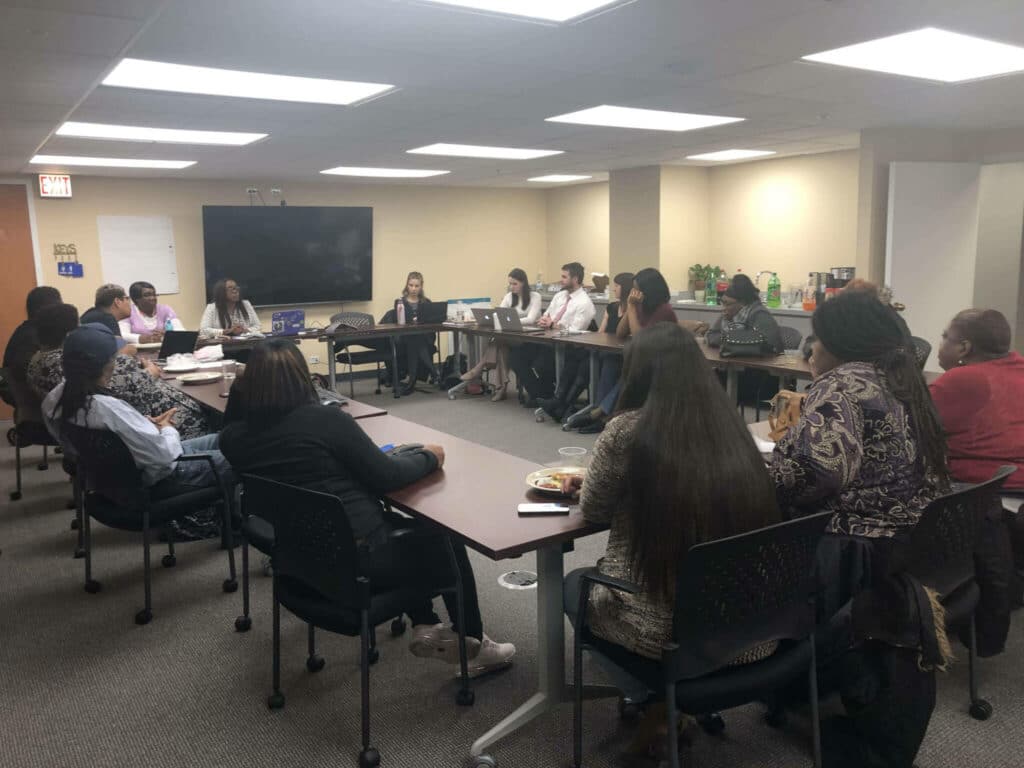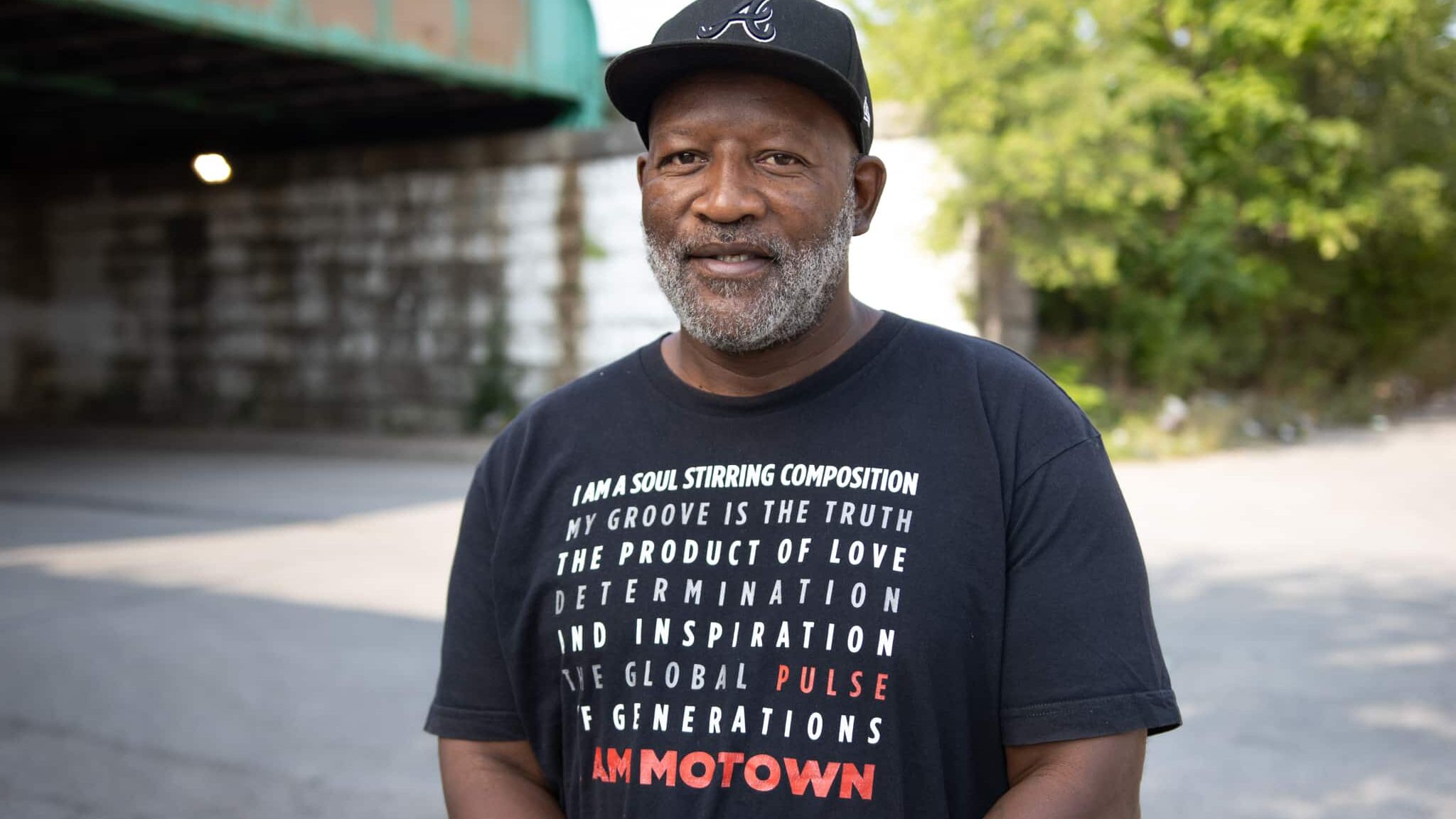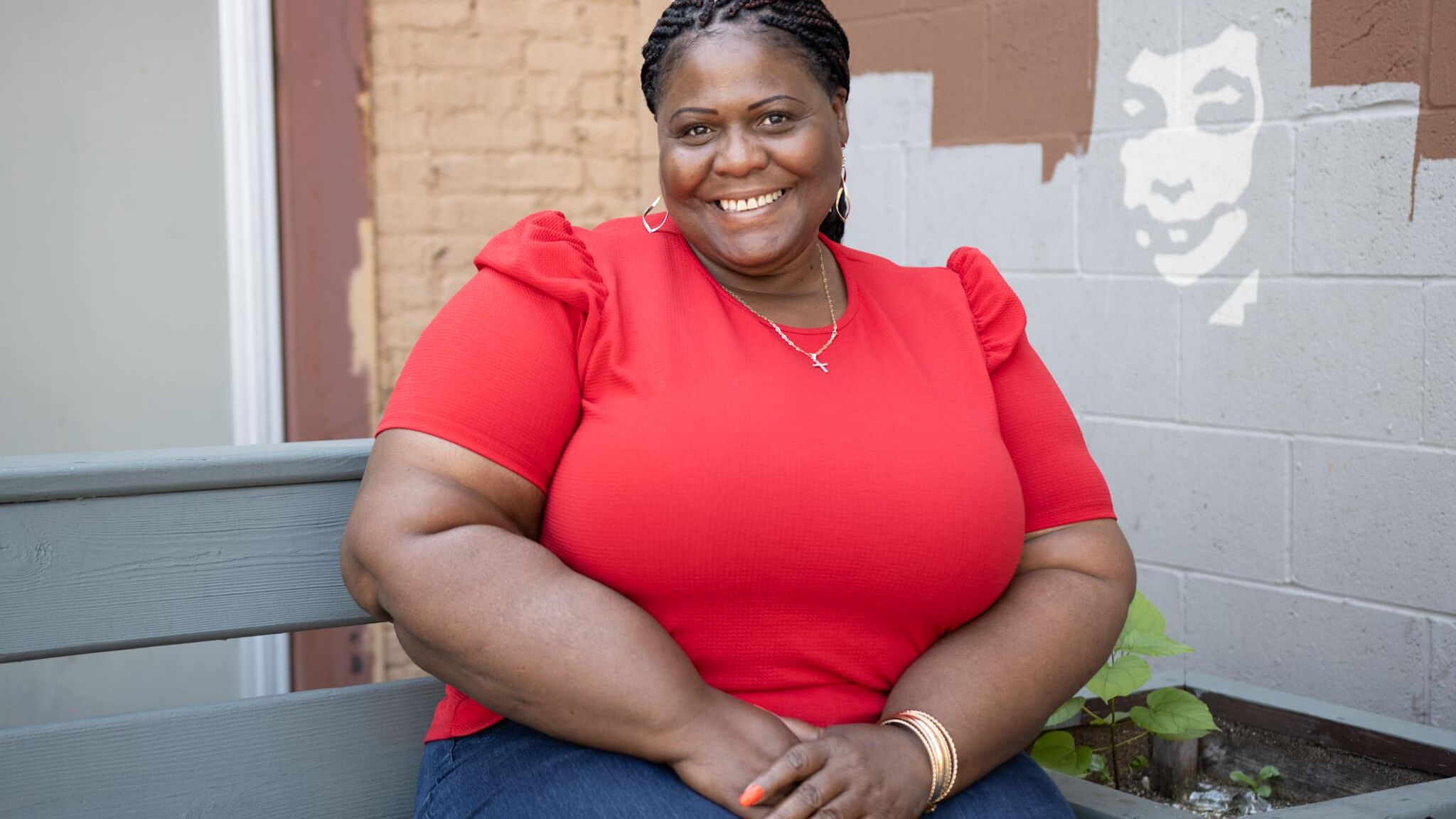In his youth, Keith Freeman remembers the Englewood neighborhood as an area infamous for high rates of crime, food insecurity, and a lack of resources. However, he never felt while growing up there that these characteristics were representative of his community and the narratives of its residents.
“I used to look at my neighborhood every day and felt like it was getting worse,” he said. “From the infrastructure, economic development, social injustice and systemic racism, all of that was killing our neighborhood. We don’t get anything unless we fight for it, not that we want handouts or anything. But it doesn’t come for us the same way it does for other communities.”
At a young age, Keith struggled to connect his desire for change in his community with positive solutions. Without mentorship or guidance, he said he got in trouble often and started experimenting with drugs because of the influences he had in his life at the time.
Keith found an outlet in sports and competition, becoming popular in the neighborhood for his prowess in both basketball and baseball. He earned an athletic scholarship to Jackson State University, and, upon graduation, moved to Atlanta to begin his adult life. Without much of a support system, Keith found himself falling back into habits he developed as a young person and struggled to stay sober.
Keith tried to address his addictions when he returned to Chicago several years later, seeking support in shelters and addiction programs.
While at a shelter, Keith was approached by the Chicago Coalition for the Homeless about joining its leadership development program for community organizing, called Grassroots Leaders, in 2006. He said he was skeptical about getting involved until he sat in a meeting about its Chicago hospital accountability campaign called Care For All, a cause that made it all connect for him.

“I went to the hospital a lot because of the stuff I did to myself, and I was in the emergency room on a regular basis trying to get medicine and treatment for whatever illness I had, and I would always get these bills. This campaign was to hold hospitals, nonprofit hospitals accountable for the services so the state would give them $300 million tax credits, and, in return, they’re supposed to give away $300 million of free emergency services for whoever came through the door,” Keith said. “When I found that out, it was like a light came on.”
Since then, Keith has been invested in organizing in Chicago’s communities, especially among homeless, formerly homeless, low income, and disabled groups. He’s worked on city-wide workforce programs, like the Neighborhood Recovery Initiative and the Fight for 15 campaign.
He now uses his full-time position as a community organizer at CCH to develop future Grassroots leaders and assist residents in bringing change to their communities by amplifying the voices among some of the most marginalized groups. The program trains its participants in planning, community organizing, and leadership. It also works on public speaking skills, growing leaders into advocates that speak at colleges, universities, and foundations.
Keith has built relationships with local shelters and housing programs, including Breakthrough, where he sits on the Board of Directors. He said helping people build connections and develop relationships is a major part of the reason he’s been successful at organizing.
“It’s not a program, it’s a relationship. The relationships I build with the brothers and sisters from Breakthrough are about change. In order to get change, you have to go after a target that can get you what you want,” he said. “So, if you are homeless, and you know someone has a solution to end this, how do you get in touch with that person and build a relationship?”
It’s a process of finding a target, learning more about individual interests, and motivating stakeholders to move in your direction. Keith has seen policies change through the power of storytelling. He’s seen homeless and disabled individuals tell their stories in Springfield and increase funding for programs like TANF. He’s seen Chicago residents become the greatest advocates for the lasting change they’d like to see in their communities.
Keith believes there is a Grassroots Leader in every community, every shelter, and every corner of Chicago. He said there are plenty of people working hard to improve their community. The challenge is helping them feel supported in community leadership.
“The difference between someone living in the shelters and a grassroots leader is that we train the leaders. A person from Breakthrough that has never sat in on any training, he’s a potential leader. They are all leaders…The best thing I can do is help build them into strong leaders in their community.”
Author
-

Breakthrough partners with people to build connections, develop skills and open doors of opportunity.
Related Posts
March 22, 2024
Breakthrough Provides Girls Sports and Other Services for Families
Breakthrough provides a safe space for youth to grow, face their fears, and learn to help others. CBS Chicago highlighted our girls sports program and the other ways we partner with families in Garfield Park.
Sports & Fitness AcademyEducation & Youth DevelopmentMediaPress
February 26, 2024
History in the Making: Royce Gives Back to the Community
Royce and the other victim advocates come alongside victims and their families in the most difficult moments.
February 6, 2024
History in the Making: Barbara Shows God’s Love
Case Manager Barbara has walked alongside women experiencing homelessness for 16 years.




